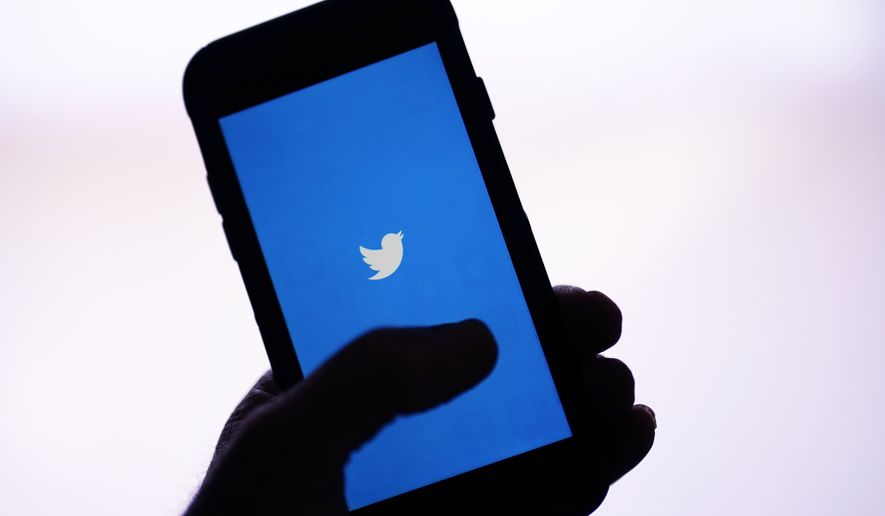OPINION:
There’s a German word, schadenfreude, which has gained popularity in this country in recent years. There’s no English word with the same meaning — the deriving of pleasure from the misfortune of others — so the German word is often used, usually in a political context, when an adversary experiences hardship.
Since Elon Musk bought the social media giant Twitter in October, a whole bunch of schadenfreude has erupted because leftists are finally getting a taste of what conservatives have endured for years.
Up to now, virtually all of Big Tech has favored liberals and shown outright hostility to conservative opinions, contrarian points of view or topics deemed unacceptable by the elites.
The cases in point are many, but there are a few that stand out. Just before the 2020 election, Twitter shut down the dissemination of the explosive New York Post story revealing that Hunter Biden’s laptop implicated his father, Joe Biden, in shady influence-peddling schemes with foreign businessmen. It was forbidden to deviate from the approved narrative on COVID-19, its origins or the vaccines. And any questioning of the results of the 2020 election was branded a threat to the very republic itself.
For many, the biggest offense of all was Twitter’s permanent ban of the then-sitting president of the United States, Donald Trump.
Repeatedly, conservatives were lectured, “Twitter is a private company and can do what it wants.” We were advised to “learn to code” and “build your own platform.” And naturally, when alternatives to Twitter did hit the marketplace, they were derided as cheap knockoffs and mere echo chambers for the right.
But then along came Mr. Musk, promising to be a defender of free speech. Conservatives cheered, while leftists railed at the man they once considered a visionary genius because he also makes cool electric vehicles.
Mr. Musk undertook major changes right away: restoring accounts to suspended users (including Mr. Trump), firing staff who had been part of the censorship problem, and releasing internal documents showing, among other things, the depths of the coordinated effort between the FBI and Twitter to target conservative accounts.
All of these were rightly hailed by conservatives as important steps toward freer speech online.
Then, in mid-December, angered by a Twitter account that tracked the whereabouts of his private plane, Mr. Musk drew a line because he believed it placed his young son in danger (and there has been news of a stalker). He initiated a policy that banned accounts that “share someone’s live location.”
The next day, at least 10 prominent accounts were suspended, including those of reporters from The Washington Post, The New York Times, CNN and Voice of America, with no immediate explanation provided, either publicly or to the account holders.
A Wikipedia page materialized, detailing the suspensions and labeling the incident the “Thursday Night Massacre” — yes, really — and unironically categorizing serial disinformationist Aaron Rupar and the clinically insane Keith Olbermann as reporters.
Members of the corporate media were apoplectic, and they created a Twitter Spaces chat where they vented their spleens about Mr. Musk. Twitter’s new CEO, however, dropped in and told the assembled scribes, “You’re not special because you’re a journalist.”
In the end, after conducting a poll on his platform, Mr. Musk said he would restore the accounts, and it appears that most of them are functioning again.
So much schadenfreude was generated by the entire episode that it would be impossible to measure or chart. Here were pillars of the online left being subjected to the same punishments inflicted on conservatives under the old Twitter regime. It was almost irresistibly delicious.
It is severely tempting to gloat that it was about time that leftists felt the sting of internet censorship as we have felt it for years. But Mr. Musk did not reveal the reason for sanctioning the accounts until later — they were accused of “doxxing,” the act of disclosing personally identifying information, by helping publicize the real-time location of his aircraft.
Since all this happened, Mr. Musk has announced that he will step down as CEO as soon as a suitable replacement is found. But if it’s under his leadership or someone else’s, conservatives should be careful about celebrating the muzzling of political opponents. Mr. Musk undoubtedly felt he was justified in imposing the suspensions, but he could have been clearer at the outset.
Fixing a seriously broken platform has been a little messy so far. Mr. Musk is indeed entitled to operate his business as he sees fit, and his first months on the job have been promising. But conservatives should expect the same level of transparency from Elon Musk’s Twitter as we fruitlessly demanded when Jack Dorsey ran the show.
Because the embrace of free speech online should not be dependent on whether we think the ones in charge are on our side.
• Tim Murtaugh is a Washington Times columnist and the founder and principal of Line Drive Public Affairs, a communications consulting firm where he advises political candidates and corporate clients.




Please read our comment policy before commenting.